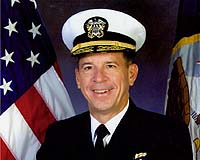 |
Kabul, Afghanistan (UPI) Jul 22, 2010 Former CIA Director Richard Helms counseled that when dealing with societies in and around the Middle East, pay attention to the things that are hundreds of years old -- the religious sects, the clans, the tribes. Military victory in Afghanistan will only come in the form of a political solution based on reconciliation between the Pashtun and the other Afghan tribes. A tribal confederation bearing allegiance to a central authority, perhaps not unlike that which existed during the Afghan monarchy, provides one model to consider. Yet there remain sharp divisions among the Afghan tribes. Not the least of which exists within the Pashtuns themselves. If fragmentation of the country is to be avoided, a balance of power system needs to be established both within the Pashtun community and between the Pashtuns and the other tribes. There has been antipathy and competition for power between the two major Pashtun clans, the Durrani and the Ghilzai dating back more than 200 years. It may be coincidental, but not surprising either, that President Hamid Karzai is a Durrani and the Taliban is predominantly Ghilzai. The struggle between these clans has also not been limited to opposite ends of the political spectrum. A similar power struggle played out within the Communist People's Democratic Party of Afghanistan between the Ghilzai Nur Mohammad Taraki and the Durrani Babrak Kamal. With all their political and ideological differences, it may appear uncharacteristic that Karzai, a Durrani, should now be sending out peace feelers to the Ghilzai Taliban. This can be best understood within the context of the Afghan political scene and the jockeying for position in preparation for a post-American and post-NATO Afghanistan. Karzai's current weakened political position has driven him to shore up his base of support within the Pashtun community. He may hope that his peace initiative toward the Taliban can solidify support among Pashtuns. At the same time it may pre-empt challenges by the opposition, who have criticized his inability to control corruption and stem the advance of the Taliban. According to Hasht e Subh, a well-known media outlet in Afghanistan, Karzai has ignited a heated debate concerning his overtures to the Taliban. It thinks that he is acting irresponsibly by defining the Taliban as only a Pashtun tribal movement, not an al-Qaida-linked terrorist group. Karzai's statement comes on the heels of his request to the United Nations to remove the names of 50 Taliban officials from the U.N. terrorist list. Hasht e Subh says that Karzai's initiatives wrongfully justify the Taliban and he doesn't clearly distinguish them morally from the Pashtun community as a whole. In addition, the Hazara, Uzbek and Tajik nationalist politicians fear that a marriage between the Taliban and the already Pashtun dominated government could deprive them of equal rights and opportunities. The Karzai initiatives, however, have obviously struck a chord with the Taliban. In an interview published on the BBC Persian service, spokesman Zabihullah Mujahid, attempted to reposition the Taliban more toward the political center, portraying the group as a nationalist movement with an Islamic ideology. Mujahid went out of his way to reassure neighboring countries that the Taliban aren't a threat to them. All this, of course, flies in the face of reality. As Thomas H. Johnson and M. Chris Mason wrote in Orbis, the Taliban follow an ultraconservative ideology of the Pakistani Deobandi school of Islam. During the Taliban rule, the power of the mullahs came at the expense of the traditional Afghan tribal leaders. The Deobandi form of Islam considers loyalty to the country as secondary to a loyalty to Islam. Similar to the al-Qaida global jihadist ambitions, Deobandis hold that it has a sacred right and obligation to wage jihad to protect Muslims in any country. The resemblance of the Afghan Taliban to that of the newly emerging Pakistani Taliban illustrates its pan-Islamic nature. It is critical to peace that an accommodation is reached among Afghan tribes but the Taliban shouldn't be considered one of them. (Lawrence Sellin, Ph.D., is a colonel in the U.S. Army Reserve and a veteran of the conflicts in Afghanistan and Iraq. He is currently serving his second tour in Afghanistan. The views expressed are his own and do not necessarily reflect those of the U.S. Army or government. The author thanks Carlo Cristofori for his insights and permission to use selections from his writings.) (United Press International's "Outside View" commentaries are written by outside contributors who specialize in a variety of important issues. The views expressed do not necessarily reflect those of United Press International. In the interests of creating an open forum, original submissions are invited.)
Share This Article With Planet Earth
Related Links News From Across The Stans
 US worries about repeat of Mumbai attacks: Mullen
US worries about repeat of Mumbai attacks: MullenNew Delhi (AFP) July 22, 2010 The US military's top-ranking officer said Thursday he feared extremists might launch another attack on India, similar to the 2008 rampage in Mumbai, in a bid to spark a war with arch-rival Pakistan. Speaking to reporters on board his plane bound for New Delhi, Admiral Mike Mullen praised India for showing restraint in the aftermath of the bloody November 2008 attacks that left 166 dead. ... read more |
|
| The content herein, unless otherwise known to be public domain, are Copyright 1995-2010 - SpaceDaily. AFP and UPI Wire Stories are copyright Agence France-Presse and United Press International. ESA Portal Reports are copyright European Space Agency. All NASA sourced material is public domain. Additional copyrights may apply in whole or part to other bona fide parties. Advertising does not imply endorsement,agreement or approval of any opinions, statements or information provided by SpaceDaily on any Web page published or hosted by SpaceDaily. Privacy Statement |